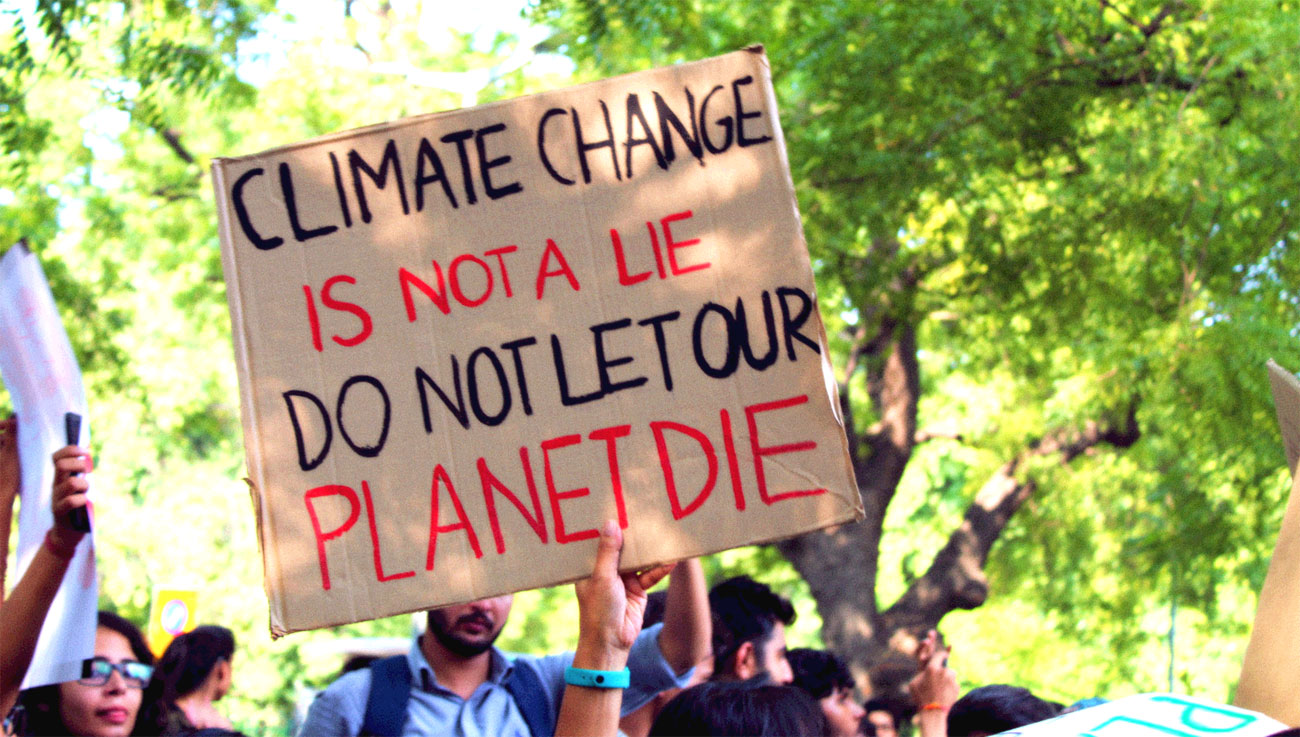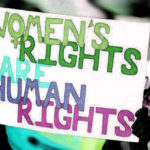“We need to wake up// We need to wise up// We need to open our eyes// And do it now nownow // We need to build a better future// And we need to do it right now”
To address the devastating effects of climate change and climate breakdown, the Global Climate Strike calls for individuals to walk out of their homes and their offices on September 20th and 27th to protest the current state of climate inaction, and disrupt the notion of business as usual. September’s Climate Strikes are poised to kick start a huge wave of dialogue and action across the world. They are set to make the leaders of the world accountable for the inaction and disregard they have shown towards the climate crisis.
Origins of Global Climate Strike
The Global Climate Strike can be traced back to 2018, when Greta Thunberg, a Swedish schoolgirl took the day off from school, to strike in front of the Swedish Parliament. In just a year, Thunberg’s individual action garnered support and applause, from youth across the world. The “Fridays for Future” movement was conceived, and school children from across the world began taking Fridays off from school to strike for climate action. These young people have woken the world up to the urgency of the climate crisis, and are now calling on the rest of us to support the movement and strike for the climate during the global strikes on September 20th and 27th, 2019.
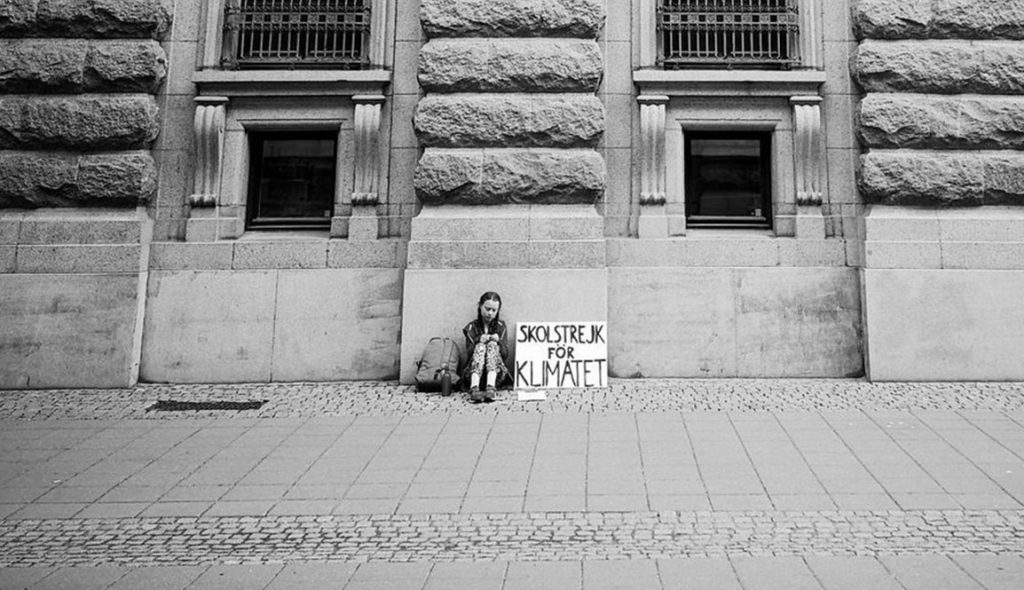

Image: Greta Thunberg, on strike outside the Swedish Parliament, 2018
What does going on strike mean?
“We’re on a planet// That has a problem// We’ve got to solve it, get involved// And do it now now// We need to build a better future// And we need to start right now.”
Going on #GlobalClimateStrike means people everywhere walking out of their homes and offices and taking time to protest the current state of climate inaction. Some will spend the day in protest of new pipelines and mines, or the banks that fund them; some will highlight the cost of mining on the environment, and many will spend the day in action raising awareness in their communities and pushing for solutions to the climate crisis that will uphold principles of justice and equity.
20th September 2019, Climate Strike
“Make it greener// Make it cleaner// Make it last, make it fast// And do it now now now// We need to build a better future// And we need to start right now.”
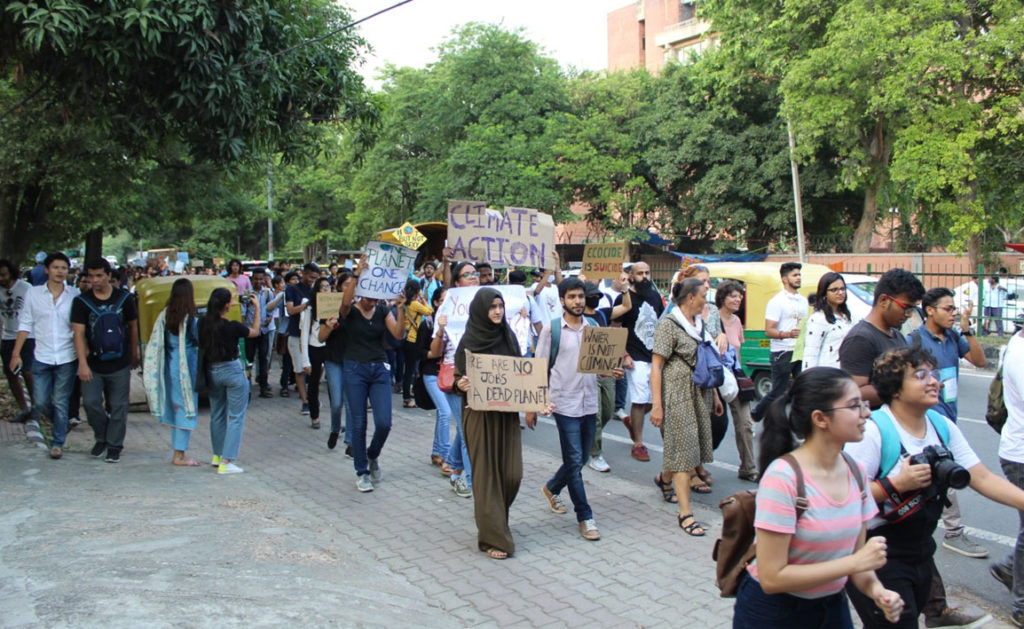

Image: #GlobalClimateStrike in New Delhi on 20th September, 2019.
Delhi marched for climate action on the 20th September. The march commenced at Lodhi Gardens and concluded at the Ministry of Environment, Forest and Climate. Students and youth were joined by prominent activists and individuals of all ages. The key slogans chanted were: “We want Climate Justice”, “There is no Earth B”, and “Azadi” from fossil fuels, from climate change, and from action. The march came to a standstill several times, as the police barricaded the path. In response individuals conducted a “die in”. A die-in, similar to a sit-in, is a demonstration in which a large group of individuals lie down as if dead: a symbolic action to demonstrate the consequences of climate inaction.
The Global Climate Strike is said to have garnered 4 million strikers across the world on the 20th of September itself, with participation from over 60 countries, and all 7 continents. The second leg is set to take off on 27th September, hoping for an equally robust participation from the masses. Even though the number of participants varies across sources, India saw extensive participation in all its major cities, including Delhi, Bangalore and Mumbai.
The climate strikes will not solve the climate crisis. However the action will demonstrate to governments across the world that citizens are aware of the urgency of the climate crisis, and demand a solution that priorities human rights, gender rights, equity and justice at its core. It’s time to show governments, world leaders, and corporations that we want climate justice and climate action. It’s time to demonstrate what people power can achieve!
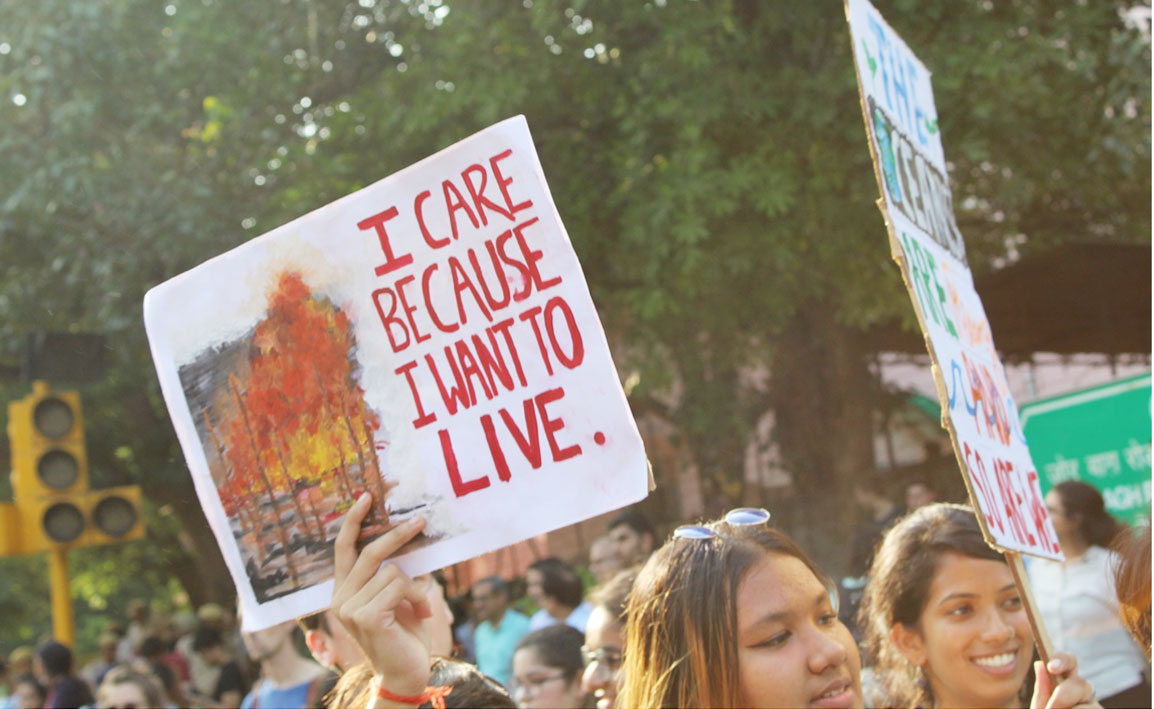

Image: “I care because I want to live”. Climate Action is not a choice, it’s a necessity.
“No point in waiting// or hesitating // we must get wise, take no more// we need to build a better future// and we need to start right now.”
The Centre for Social Research supports the #GlobalClimateStrike, and the urgent need for climate justice. We support climate action through our endeavours that link gender, water and climate change. We acknowledge that the degree, to which people are adversely affected by climate crisis, depends partly on their social status, gender, poverty, power and access to and control over resources. In this sense, we note that women are traditionally more exposed to, and less able to cope with the adverse effects of climate change. They are also largely excluded from dialogue and action. Largely, the impacts of gender inequalities and women’s recurrent socio-economic disadvantages continue to be ignored and remain a critical challenge to adaptation efforts.Through our work and the projects that we engage in, we draw on women’s experiences, knowledge and skills, in order to support their empowerment, and thereby make climate change responses more powerful and effective.
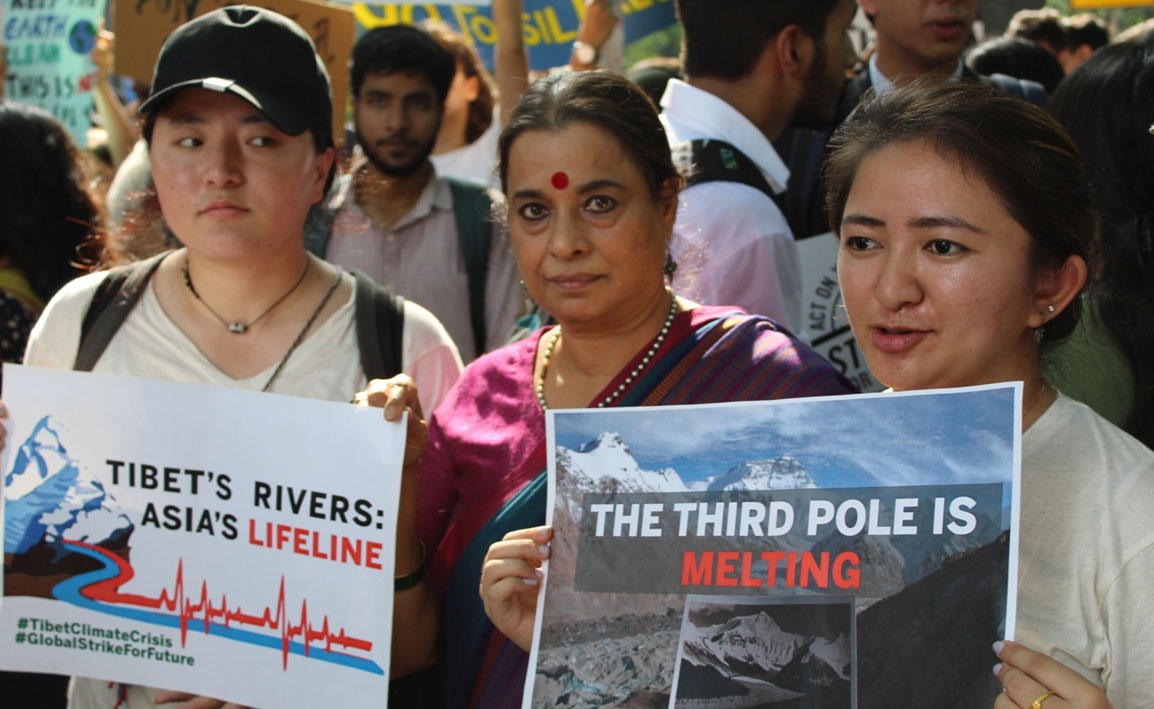

Image: Dr.Ranjana Kumari at the Global Climate Strike, with activists from Tibet.
References:
Song: Do it now – Bella Ciao (protest song sung on the strike): https://www.youtube.com/watch?v=c7V1qLLsn7M
Global Climate Strike: https://globalclimatestrike.net/
Greta Image: https://www.huffingtonpost.in/entry/greta-thunberg-photo-viral-again_n_5d85f07ae4b070d468cd3bb7
All other images: Centre for Social Research



